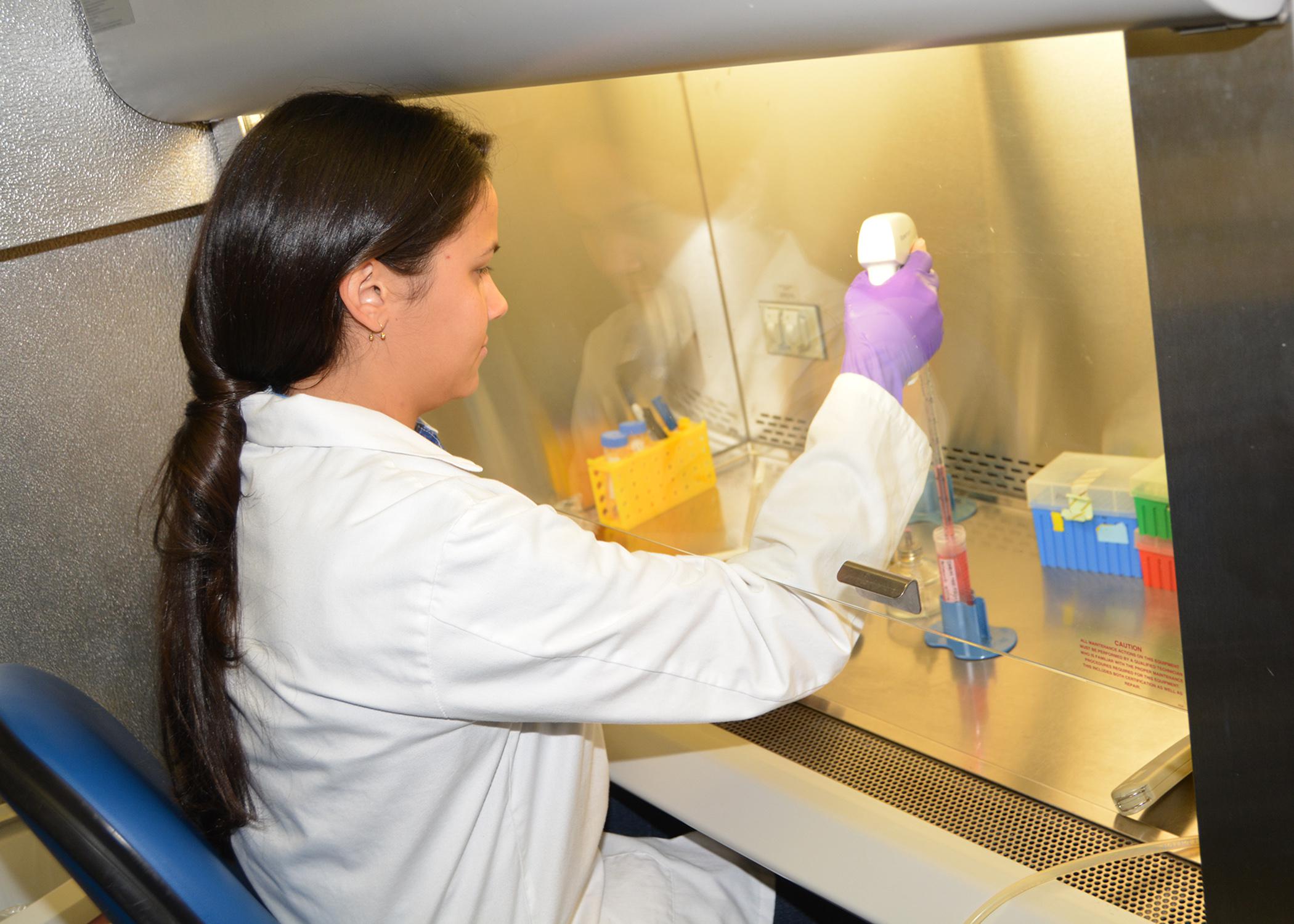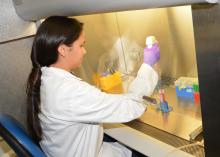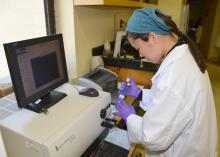Information Possibly Outdated
The information presented on this page was originally released on July 24, 2014. It may not be outdated, but please search our site for more current information. If you plan to quote or reference this information in a publication, please check with the Extension specialist or author before proceeding.
MSU hosts young animal scientists
MISSISSIPPI STATE -- A young researcher from Maine and another from Brazil are finding Mississippi to be a good place to lay the foundation for scientific careers.
Samantha Kwok of York, Maine, and Arabela Viana from just north of Rio de Janeiro are conducting similar, but separate, studies in physiology this summer at Mississippi State University. Kwok, who will be a senior at the University of Maine in Orono this fall, is a fellow in the Research Experience for Undergraduates in Computational Biology funded by the National Science Foundation. Viana is a fellow in the MSU College of Veterinary Medicine’s Summer Research Experience Program.
“This experience has provided a variety of opportunities and insights into research, including the importance of good communication skills,” Kwok said. “You can be a great scientist, but if you can’t communicate, you won’t succeed.”
Much of Kwok’s research into reproductive issues involves computational biology. She uses computer-assisted sperm analysis technology to measure movement in semen samples from bulls. Additionally, she studies how external factors affect gene expressions, specifically in the last stage of embryo development before implantation.
Viana is in her fourth year of a five-year program to become a doctor of veterinary medicine in Brazil. She spent last year at Tuskegee University in Alabama. In this summer’s research, she determines the stability of stem cells taken from the fatty tissues in pigs, which are studied because of their similarity with human tissues.
“The goal of this project is to improve the efficiency and safety of applications of (these stem cells) in human and animal regenerative medicine,” she said. “There is an urgent need for this research because science-based solutions are essential for developing safe strategies for regenerative medicine treatments.”
Dr. Erdogan Memili, an associate professor in animal sciences and a researcher with the Mississippi Agricultural and Forestry Experiment Station, serves as a faculty mentor in the program. A doctor of veterinary medicine, his research and academic focus is on molecular biology, reproduction and development.
“These students are among the best of hundreds of applicants. They stood out because of their research experiences and strong motivation for doing high-quality research,” Memili said. “This summer, they are building on previous research conducted in this laboratory.”
Memili said the program helps students develop scientific thinking, design research proposals and improve their ability to conduct research and communicate science. They also benefit from training opportunities with faculty in other university departments. Professors from the MSU College of Veterinary Medicine and the MSU Department of Computer Science and Engineering also take part in their research efforts.
“The faculty members work like cheerleaders, encouraging the students to expand their wings and learn new things. We want them to enjoy the research experience and pursue science,” Memili said. “Sometimes, they ask innocent questions that challenge and expand our own knowledge and research methods, prompting us to explore other areas.”
Memili described their efforts as “cutting-edge research” in animal biotechnology and genetics.
“This program also provides them with the opportunity to present their findings at national and international scientific conferences and publish the new information in scientific journals,” he said.




